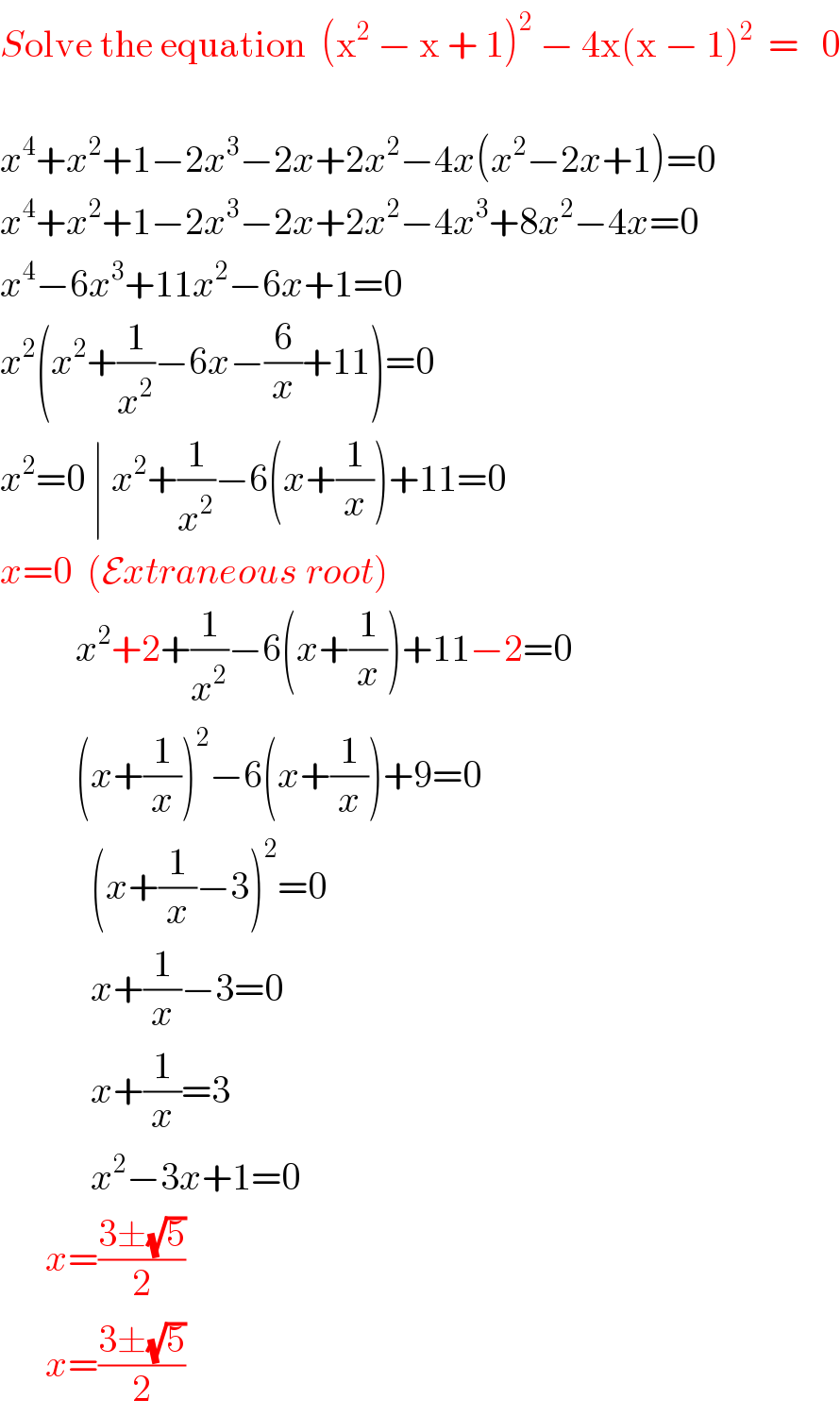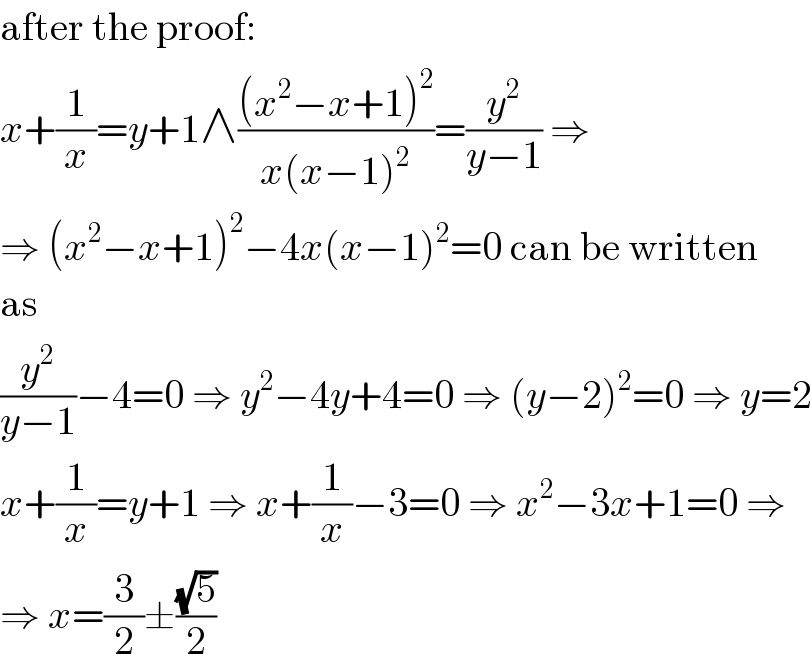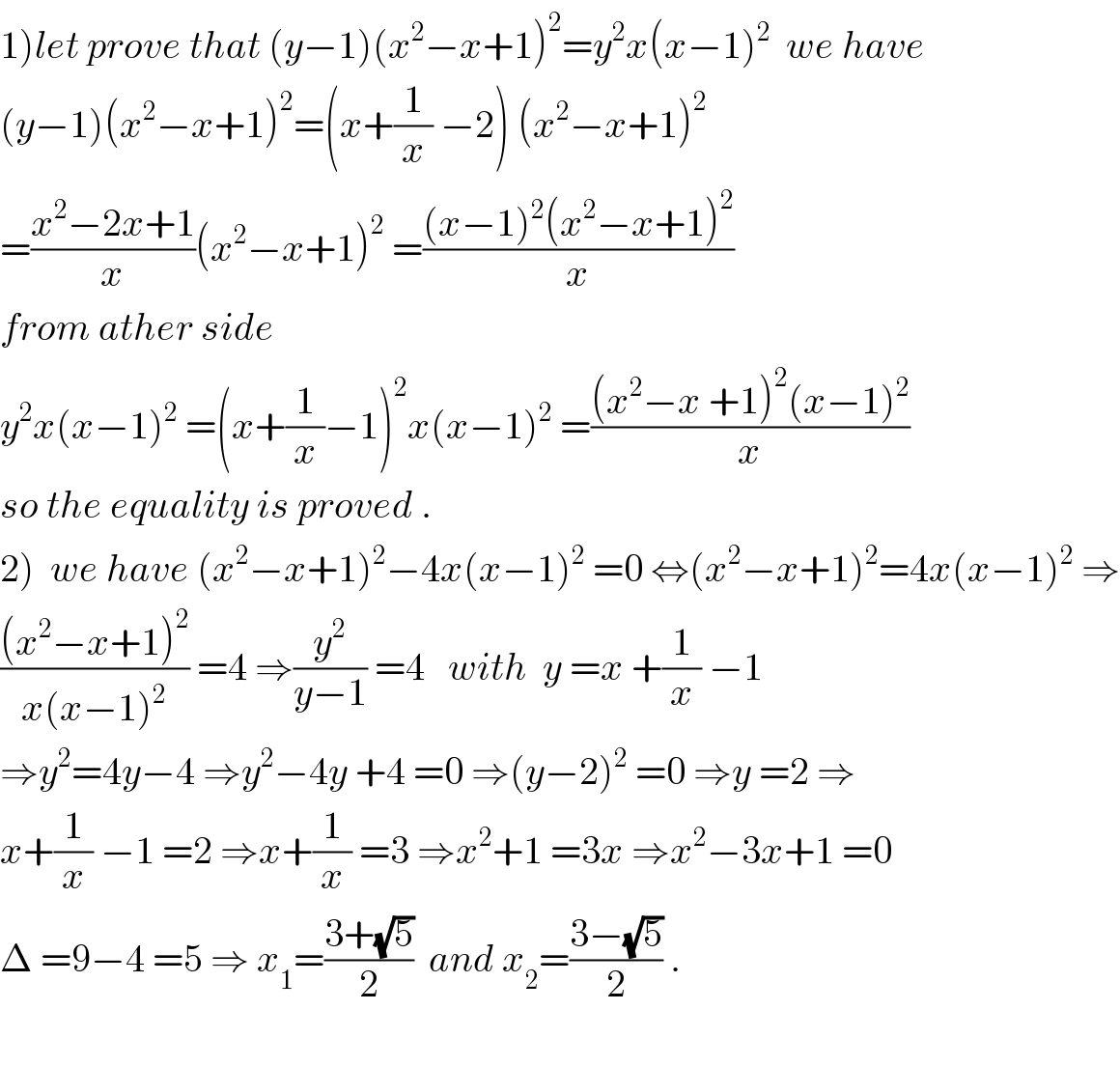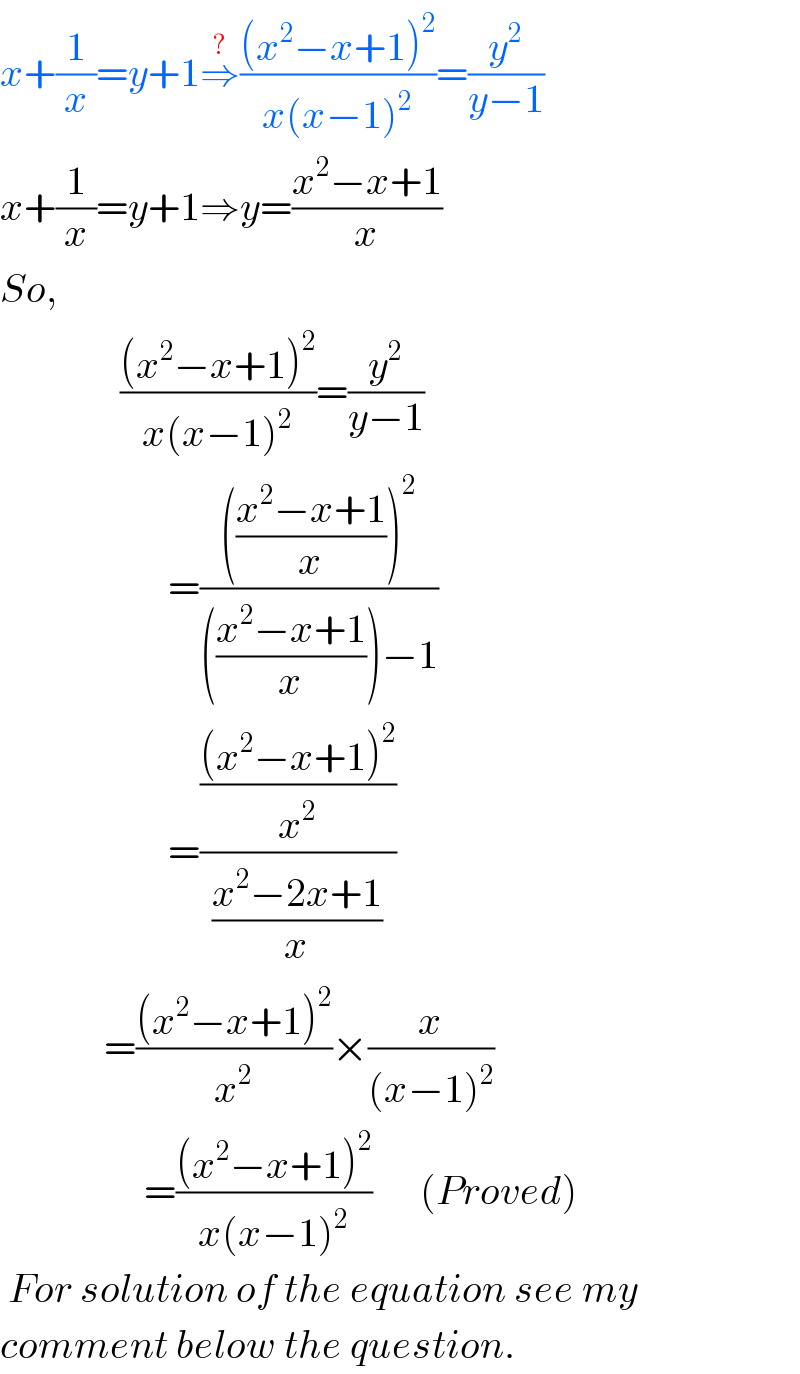
Question and Answers Forum
Question Number 60910 by Tawa1 last updated on 27/May/19

Commented by Rasheed.Sindhi last updated on 27/May/19

Commented by Tawa1 last updated on 27/May/19

Commented by Tawa1 last updated on 27/May/19

Commented by MJS last updated on 27/May/19

Commented by Rasheed.Sindhi last updated on 27/May/19

Commented by Tawa1 last updated on 27/May/19

Commented by maxmathsup by imad last updated on 28/May/19

Answered by Rasheed.Sindhi last updated on 27/May/19

Commented by Tawa1 last updated on 27/May/19

